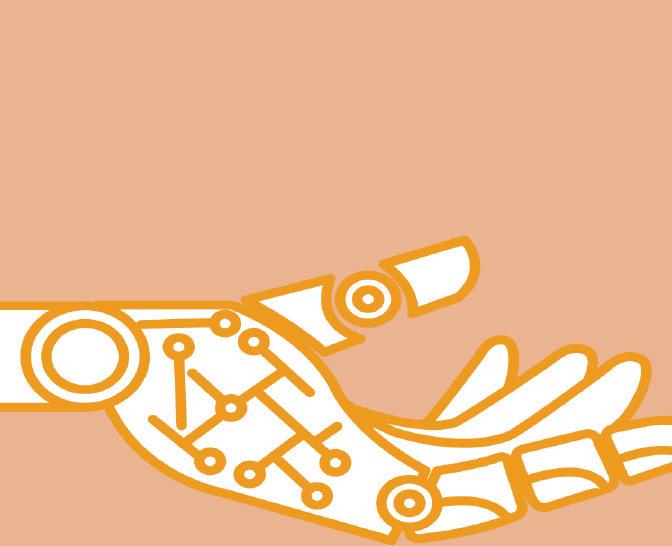
2 minute read
TERMINATE OR INTEGRATE BREAKING DOWN THE ADVANTAGES, DRAWBACKS OF ARTIFICIAL INTELLIGENCE
Recently, artificial intelligence has provided solutions for ticking bombs, from engineering to medicine. AI also significantly reduces human error and can save a person’s sanity and life by performing only a few tasks. Today, AI is needed to maintain and promote a stable lifestyle. According to The Balance, as of 2021, US citizens work an average of 38.7 hours per week. Overworking can lead to extreme health effects, including an increase in stress hormones, which can lead to brain fog and high blood pressure. AI does not suffer from fatigue or drowsiness and can cover simple tasks to prevent people from overworking. This technological improvement leads to higher workplace morale and in turn increased employment. This is due to the increased probability that many employees would be relaxed arriving at work knowing they don’t have numerous tasks to catch up on.
AI can also detect patterns in numbers, images and words that humans cannot.
Advertisement
“I believe AI is needed to help simplify tasks and improve society as a whole,” freshman Sophia Bessignano said. This has led to the creation of technology like self-driving cars, which can drastically prevent car crashes and drunk driving. Because of the higher levels of autonomy, the potential risk behaviors drivers can cause, decreases.
AI can also drastically prevent an explosion, as it can defuse a bomb safely, which can help the U.S military maintain its warfighting edge.
Preventing deaths is not the only thing
AI can halt. Human trafficking is a severe issue around the world that leads to disappearances and distress among families. AI tools and computer vision algorithms scrape images from different websites used by traffickers. Additionally, items and labels can be identified in these images, which alert the authorities of potential trafficking activity.
Humans use AI every day, even without realizing it. The adoption of AI can advance human infrastructure and capital, research, and ethical concerns.
Balancing the pros and cons of AI will force the next generation to make difficult choices.
Story by Amber Rivas.
AArtificial intelligence has taken a substantial role in benefiting the lives of humans. However, as the AI industry grows in value and popularity, the question becomes not can the world use AI, but if they should.

At its core, any invention is done so with the goal of fixing a problem. AI is there to replace human error, but society must be careful not to let it tear society apart.

Bias and discrimination are one of the key problems in modern society. Many view AI as a non-biased viewpoint, but that is far from true. An AI system is as biased as the human who created it. In 2018, Amazon’s experimental AI hiring system was found to have the very bias it was set to destroy. The technicians who fed it algorithms included discrimination against women in the code – purposefully or not. Without drastic social change by humans, AI will always reflect the current social biases. The bias of AI connects with disinformation. Online bots can spread potentially dangerous false narratives, fake texts or further blur the lines of fiction and truth online. However, it simultaneously increases viewer enjoyment online by filtering feeds and predicting what the user likes and dislikes.
“I do think AI can be useful in moderation,” freshman Nadine Shaw said. “But it hurts our society more than it helps in
Climate change will continue to be a pressing global issue, and AI is not positively contributing. A study by University of Massachusetts Amherst found that training just one AI unit emits around 300,000 kilograms of carbon dioxide. That is equivalent to five times the lifetime emissions of an American car.
Finding the balance between good and bad has never been simple, but the next generation, including HSE students, will be tasked with making these impactful choices.
Story by Maya Patel.








